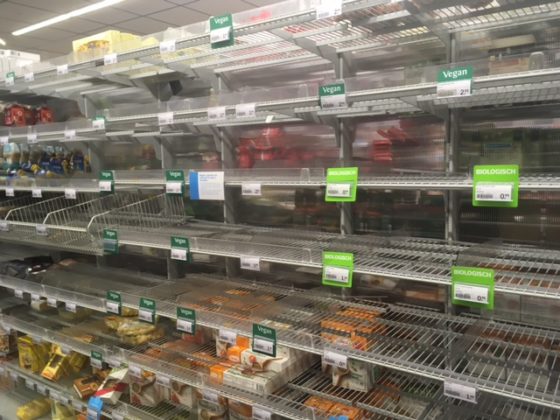What the new coronavirus measures in the Netherlands mean for you


The Dutch government on Thursday announced new nationwide measures to try to contain the coronavirus epidemic in the Netherlands. Here’s what you need to know.
Social contacts
- If you have a cold, a cough, sore throat or a fever stay home. Avoid contact with others. Only call your doctor if your symptoms get worse.
- Gatherings of more than 100 people have been cancelled. This includes public places such as museums, concerts, theatres, professional and amateur sports events and matches.
- Churches and mosques are also cancelling their services
- There are currently no restrictions on visiting a cafe or restaurant, as long as you do not have any symptoms
- Work from home if possible or stagger your working times.
- Try to avoid close contact with the elderly and people with weakened immune systems.
- In particular, elderly people and those with weakened immune systems are asked to avoid large gatherings and public transport.
- Healthcare workers are being asked to stay home only if they have symptoms including a fever. They are also being asked not to travel abroad.
Education
- Universities and hbo colleges have been requested to offer online lectures and the university and college associations have said they will stop all physical forms of education for the time being, including exams.
- Children who have a cold, cough or fever should stay at home.
- Primary schools, secondary schools, secondary vocational schools (MBO) and childcare centres will remain open as usual. This, the government says, is because children and young people are not high-risk groups and closing schools would have a major impact on society without contributing significantly to reducing the spread of coronavirus.
The measures apply up to and including March 31.
Hygiene
The Dutch public health institute RIVM and World Health Organisation say everyone should follow these instructions to prevent infection:
- Avoid shaking hands and physical contact
- Wash your hands frequently and thoroughly with soap or alcohol rub
- Sneeze into a tissue or your elbow
- Use paper tissues and dispose of them immediately
- Stay away at least one metre away from people who are sneezing or coughing
- Avoid touching your face with your hands, which may have picked up the virus
The RIVM says face masks should only be worn by medical staff. Most of the paper masks used by the general public are worthless and offer a false sense of security, officials say.
Coronavirus in the Netherlands, the questions you want answered
Tests
Tests for coronavirus can only be requested via the local health board or a hospital and it takes around 24 hours for the test results to come through.
Testing is currently only being carried out on people who have worsening symptoms and have been in an at risk area or in contact with people who have coronavirus.
The RIVM has an interactive map showing where corona infections are being confirmed.
Can I still go on holiday?
The Dutch foreign affairs ministry has up-to-date advice on foreign travel and has set up a red to green coding system for coronavirus. Currently China, Iran and Italy should be avoided for all but essential travel. The Dutch government website has more information in English.
The US has imposed a travel ban on all incoming flights from the EU from Saturday.
Official information sources in English
Dutch public health institute RIVM
Dutch government website
The government has also published flyers in a variety of languages about the recommended hygiene measures.
Thank you for donating to DutchNews.nl.
We could not provide the Dutch News service, and keep it free of charge, without the generous support of our readers. Your donations allow us to report on issues you tell us matter, and provide you with a summary of the most important Dutch news each day.
Make a donation